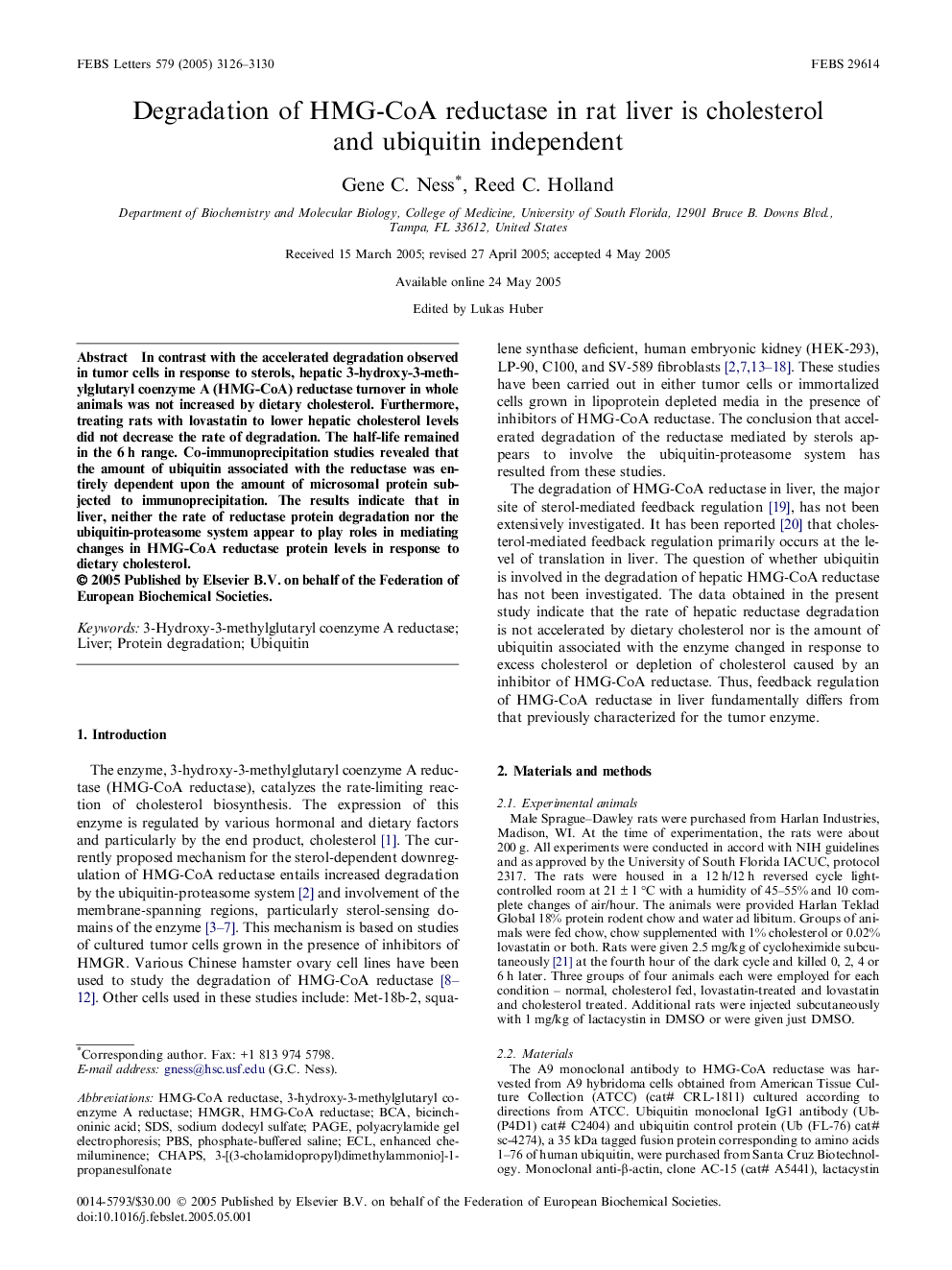| Article ID | Journal | Published Year | Pages | File Type |
|---|---|---|---|---|
| 2053231 | FEBS Letters | 2005 | 5 Pages |
In contrast with the accelerated degradation observed in tumor cells in response to sterols, hepatic 3-hydroxy-3-methylglutaryl coenzyme A (HMG-CoA) reductase turnover in whole animals was not increased by dietary cholesterol. Furthermore, treating rats with lovastatin to lower hepatic cholesterol levels did not decrease the rate of degradation. The half-life remained in the 6 h range. Co-immunoprecipitation studies revealed that the amount of ubiquitin associated with the reductase was entirely dependent upon the amount of microsomal protein subjected to immunoprecipitation. The results indicate that in liver, neither the rate of reductase protein degradation nor the ubiquitin-proteasome system appear to play roles in mediating changes in HMG-CoA reductase protein levels in response to dietary cholesterol.
